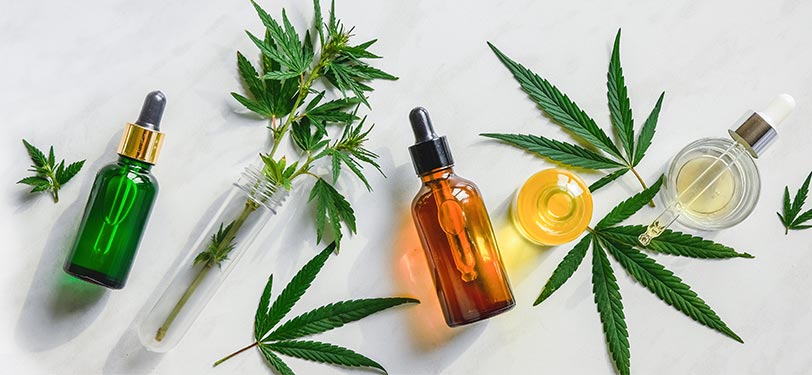You have probably heard of the THCV cannabinoid, sometimes known as “diet weed,” whether you are brand new to the cannabis industry, already a hemp enthusiast, or even a true cannabis expert. Compared to other cannabinoids, such as CBD and THC, it possesses a more diverse set of properties and therapeutic benefits. Since its discovery, it has baffled all in the cannabis world and driven cannabis scientists and researchers to keep undertaking extra studies to uncover its broad potential.
These days, THCV products are available for sale and are extremely popular. Nevertheless, whether you are a casual fan of hemp or a medical marijuana patient, you should learn many essential points about the molecule if you want to try it out. It is important, no matter if you are interested in THCV products, because they might have therapeutic effects or because they are popular as weight-loss agents.
This well-known component found in the cannabis plant will be discussed in more detail in the article’s following paragraphs. There you will discover valuable sections that explain its characteristics, clarify safety and legality concerns, and give you a complete understanding of its effects during use for different purposes.
What Is THCV Cannabinoid?
Tetrahydrocannabivarin, often known as THCV, is a naturally occurring molecule that can be found in cannabis. This compound has different and unique effects compared to other cannabinoids. In contrast to tetrahydrocannabinol and cannabidiol, tetrahydrocannabivarin is a much rarer cannabinoid, mainly present in African sativas, particularly landrace strains. Both THCV and THC share very similar molecular structures. The only difference between them is the presence of two additional carbon atoms. On the other hand, THCV is not nearly as psychoactive as THC; its estimated potency is somewhere around 25% of that of delta-9.
Because tetrahydrocannabivarin is a cannabinoid, it interacts with the endocannabinoid system, also known as the ECS. ECS is a biological, cell-signaling system that includes several receptors, enzymes, and endocannabinoids. Specifically, they are responsible for the reaction to different cannabinoids.
CB1 and CB2 are the two primary receptors that the ECS possesses. THCV has an entirely different effect on them compared to regular delta-9. The last one interacts with the CB1 receptor, causing intense high effects and particular feelings related to hunger. Instead, THCV binds to the CB1 receptor to block it and deliver the effect of reducing appetite.
Is It Safe?
Because tetrahydrocannabivarin doesn’t deliver any psychoactive effects, it is generally believed to be safe. It is important to remember that before this cannabinoid is infused into any product, it’s almost always combined with other deltas. So the recommendation to “start low and go slow” should be adhered to.
When it comes to any cannabis molecule-infused products, it’s never a good idea to consume a lot because this might lead to unwanted side effects. On the basis of anecdotal reports from users, it is feasible to conclude that ingesting an excessive amount of THCV products may result in tiredness or dry mouth.
Another essential aspect that must be carefully considered is the producer. When searching for products that include tetrahydrocannabivarin on dependable sites, verifying the manufacturer’s reliability and the laboratory findings’ presence is essential. Because the FDA does not regulate THCV in the same way as other cannabinoids, the obligation to maintain safety for each product falls on the producer.
How Does THCV Feel and How to Use It?
Researchers have been intrigued by tetrahydrocannabivarin ever since it was first detected due to the myriad of various benefits it possesses. Let’s take a closer look at each of them.
- This component has been shown to reduce feelings of hunger. It is considered great for people trying to lose weight but must be avoided by patients treated for anorexia disorder or appetite loss.
- THCV has the noticeable potential to control blood sugar levels and decrease insulin resistance.
- The molecule provokes the growth of new bone cells and is believed to become a potential treatment for bone-related disorders.
- The compound may mitigate anxiety attacks (experienced by PTSD patients).
- There is early research on its positive effect related to Alzheimer’s therapy. Specifically, improvements in brain lesions, tremors, and motor control associated with the disease are likely due to the molecule effects.
Is It Legal?
Congress signed the Agriculture Improvement Act, or Farm Bill, in 2018. Since then, hemp and its molecules and derivatives have become legal at the federal level. Precisely, the hemp plant, according to the package of legislation passed, is a cannabis plant containing THC levels within 0.3 percent or even less. Therefore, as tetrahydrocannabivarin is a hemp-derived molecule, it is federally legal to date.
Considering all the above, one must also keep in mind that states are currently adopting and implementing laws related to the cannabis industry. And there was recently an exemplary case with delta-8. To be specific, the component was banned when the connections to the Federal Analog Act were established. So, it is best to check the laws of your state to find out how the THCV component is treated by the law right now.








Add Comment